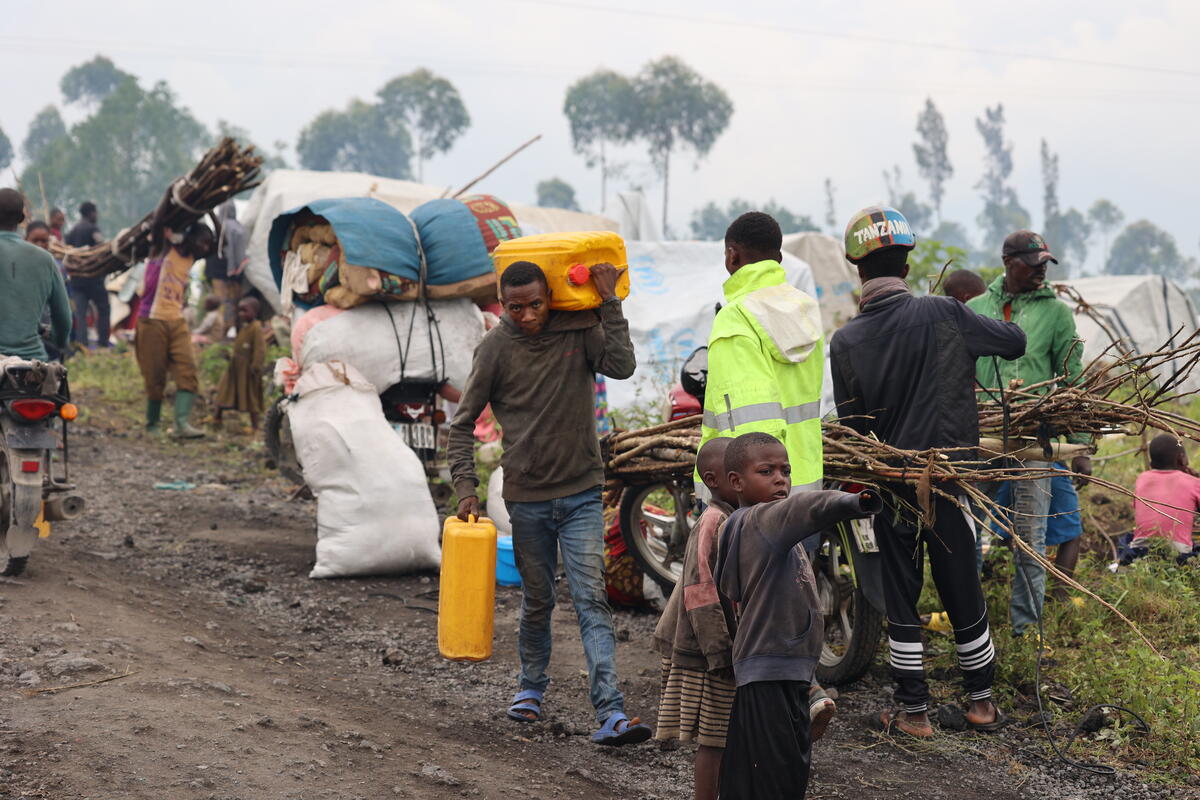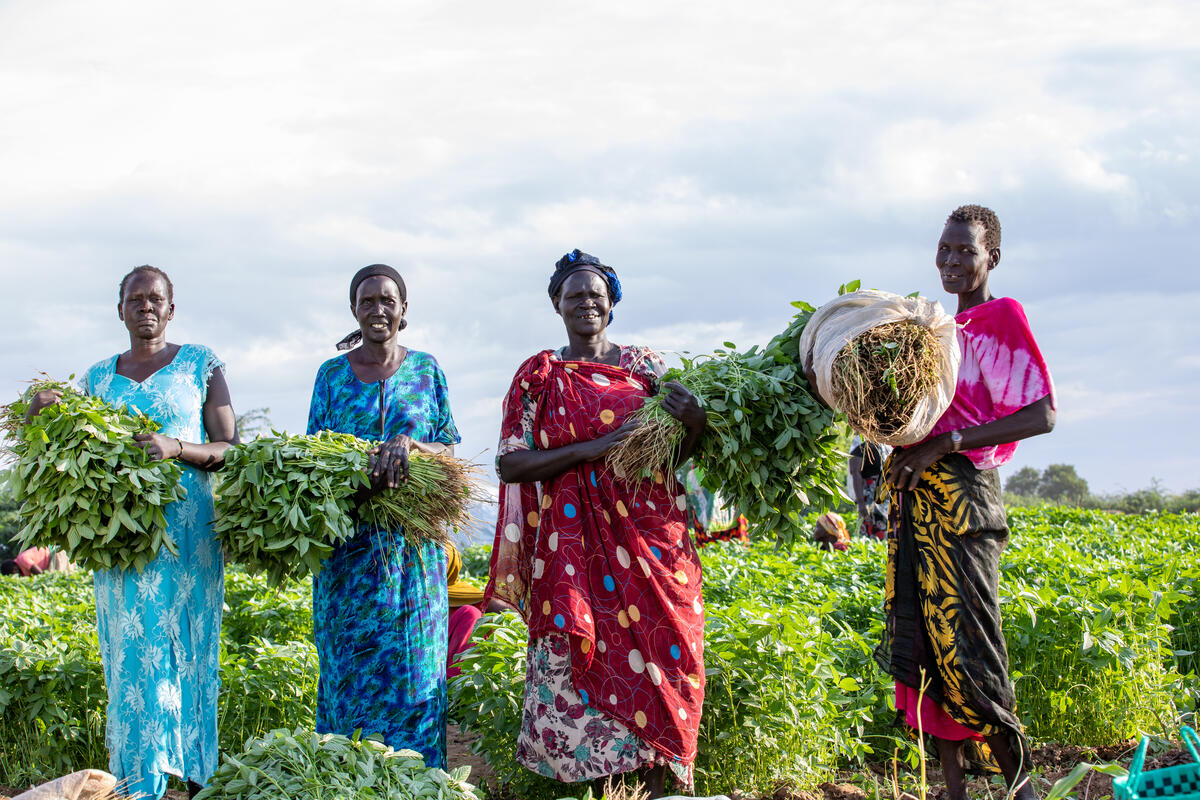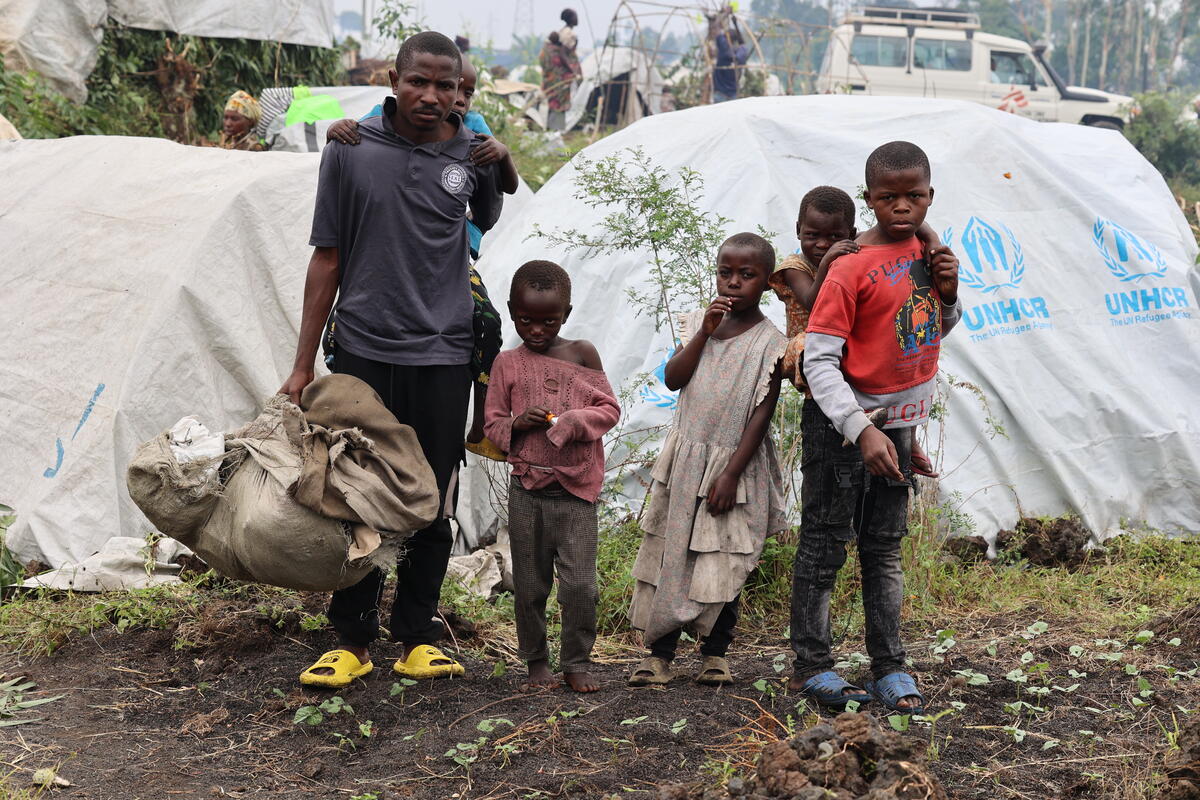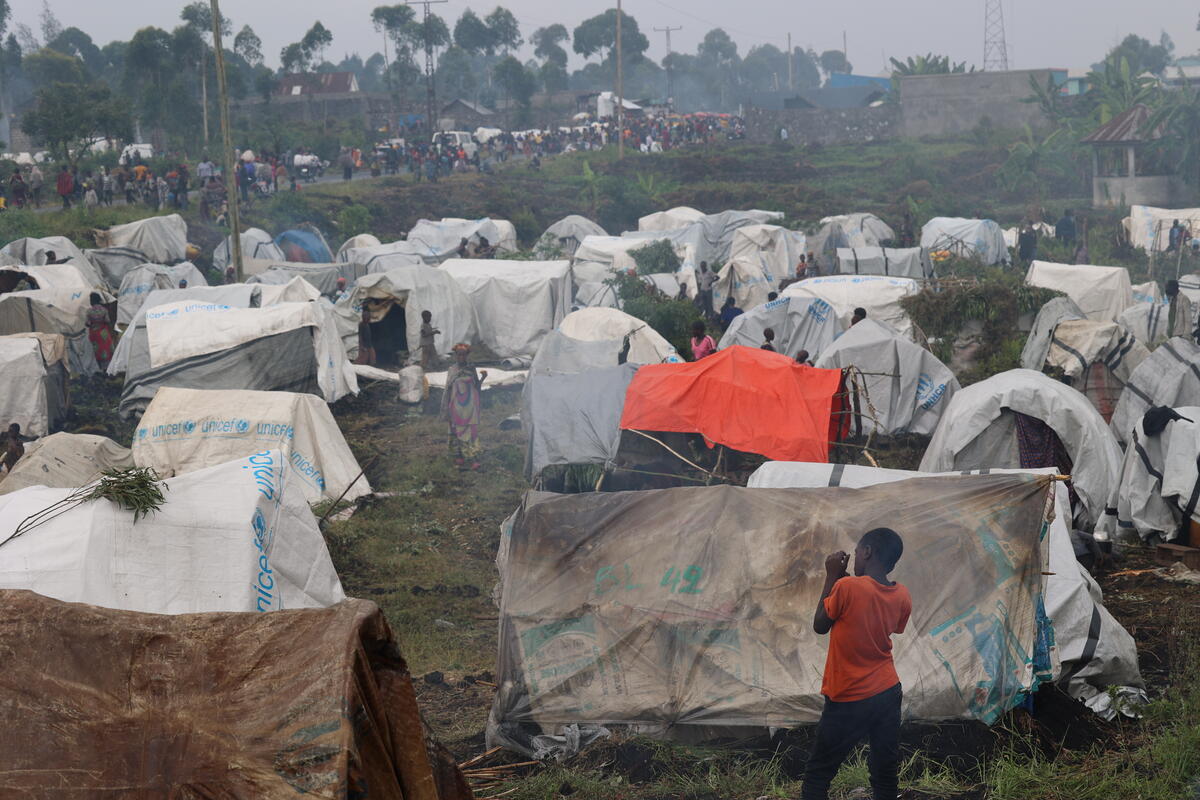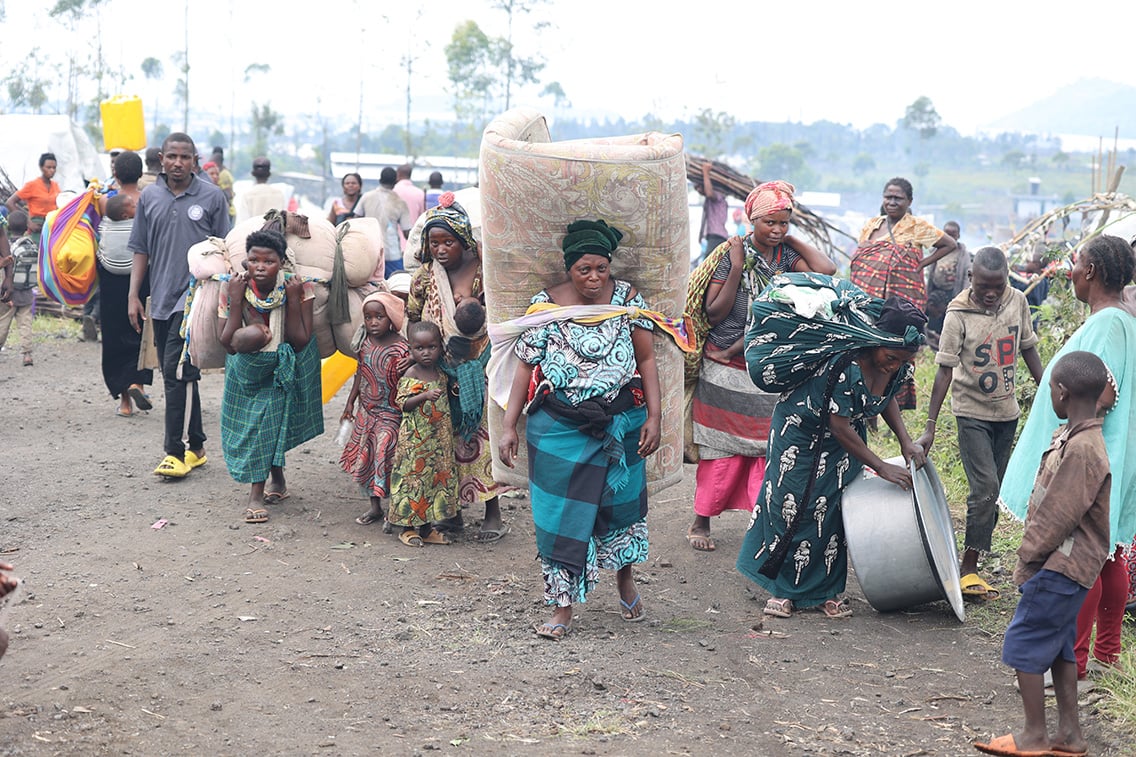Pontoons loaned by Belgian government speed up returns from Tanzania to DRC
Pontoons loaned by Belgian government speed up returns from Tanzania to DRC

KIGOMA, Tanzania, December 1 (UNHCR) - At the very beginning of their journey home after seven years in exile, Congolese refugees heading for South Kivu have had to navigate quite an obstacle course.
Because of low water levels in Lake Tanganyika that left the Kigoma pier high and dry, refugees have had to clamber across the decks of three parallel ships and then teeter along an unstable wooden gangplank to board MV Mwongozo, the ship the UN refugee agency chartered for the repatriation to eastern Democratic Republic of the Congo (DRC) that began in October.
Now all that has changed, thanks to six pontoons made available by the government of Belgium. The floating pontoons, weighing 35 metric tons, were shipped more than 8,000 kilometres from Belgium to the port of Kigoma, in western Tanzania. All costs for use of the pontoons have been paid by the Belgian ministries of defence and foreign affairs, and the installation done by the Belgian army.
The 40-metre-long pontoon walkway to the Mwongozo is such an improvement that UNHCR will be able to increase returns to two a week from one a week, with the costs of the extra sailings also being funded by the Belgian government.
"The pontoons make a great difference to the operation at this stage and we are most grateful for the Belgian contribution," UNHCR Representative, Chrysantus Ache said at the ceremony in Kigoma Port last Friday. "Not only are we now able to overcome the problem of low water levels and organise two crossings on a weekly basis, the boarding of the ship is now also carried out under much better and safer conditions."
The Ambassador of Belgium to Tanzania, Peter Maddens, officially inaugurating the use of the pontoons in Kigoma Port, said one refugee woman had joyously shouted to him: "Ninaenda nyumbani" - "I am going home," in Kiswahili.
"It is exactly this excitement that I see in the faces of the returnees which makes me really proud of standing here today," the ambassador said.
Along with UNHCR officials and local authorities, the ambassador waved off the latest convoy of returnees, who had a beef dinner to look forward to on their crossing. The seven- or eight-hour journey across the lake allows them time to sleep before they reach the shores of their home country in the early morning hours the following day. From the DRC port of Baraka, UNHCR takes them by truck to their home villages.
UNHCR started facilitating the return of the Congolese refugees from Tanzania - across Lake Tanganyika, the second-deepest lake in the world - with test runs in October, and an official launch in early November.
The pontoons offer a useful solution, though a temporary one; they are part of a larger consignment intended for army use in Kalemie, DRC, and at some point will have to be dismantled and shipped to their final destination. UNHCR is considering constructing a new, longer pier at the port of Kigoma to allow boarding even when the water level is low.
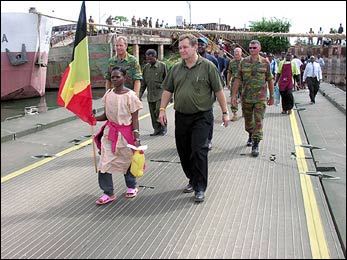
The camps of Lugufu and Nyarugusu in western Tanzania are still home to some 152,000 Congolese refugees who fled fighting in the eastern DRC regions of North and South Kivu more than seven years ago.
Since the voluntary repatriation started in October, more than 3,000 refugees have returned with the refugee agency's help. With the new possibility of repatriating up to 1,000 instead of 500 refugees a week, UNHCR expects that some 7,500 Congolese refugees will have returned home by the end of the year.
By Mia Bülow-Olsen in Kigoma, Tanzania


